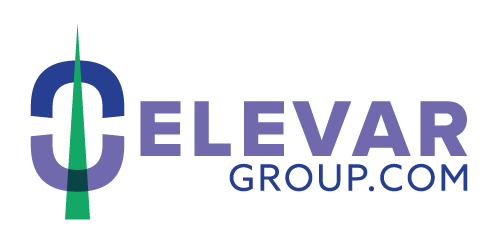 I love listening to the nagging, chronic client complaints that commonly drive coaches crazy. Like fear of failure, lack of confidence, self-sabotage, procrastination, overwhelm, impatience, shyness, not speaking up, habitually thinking negative thoughts. I love listening because I don’t have to listen for long. All I need to do is ask five simple questions and —BOOM— clients break through their fears for good. Instantly. Consistently. Authentically.
I love listening to the nagging, chronic client complaints that commonly drive coaches crazy. Like fear of failure, lack of confidence, self-sabotage, procrastination, overwhelm, impatience, shyness, not speaking up, habitually thinking negative thoughts. I love listening because I don’t have to listen for long. All I need to do is ask five simple questions and —BOOM— clients break through their fears for good. Instantly. Consistently. Authentically.
Would you like to know what those five questions are?
I’ll tell you. After a story.
It’s June of 2003. I’m about to do something that strikes terror into the hearts of more people (including my own) than even the fear of death. I’m about to speak in public.
“Carol, you’ve got to be kidding,” my coaching colleagues would say. Sure, they’d say that now…because they weren’t inside the pounding chest, clammy skin, and knocking knees that were about to step in front of 120 coaches crammed inside a long, narrow hotel function room on the outskirts of Philadelphia.
Saying yes to the invitation to speak about NLP had been a relatively easy thing to do when the speaking engagement was two months away. But now that the microphone had been placed in my sweaty palm, every nerve ending shrieked no, no, no.
Open with a question, I told myself. Coaches love questions.
“So,” I asked as calmly as I could, “how many of you are familiar with NLP?”
All but six or eight hands shot up.
“Wow, you’re a knowledgeable group,” I said. “So, who would like to give me a working definition of NLP?”
Just as quickly, the hands went down.
“Come you guys,” I cajoled. “Somebody? Anybody?” Talk about dying on stage.
In mock exasperation, I folded my arms like a scolding grade school teacher. “Since my entire presentation is predicated on someone giving me a working definition of NLP,” I quipped, “I’ll just have to stand here until somebody does.”
Tick-tick-tick, went my mental clock. Finally, after an excruciatingly long stretch of time, a lone hand went up waaaaaaaaay in the back of this acoustically challenged room. I had no choice but to take the microphone to him.
Holding the mic in my left hand, I lifted my left foot to take a step. But before my foot could touch the floor, I felt a kind of electric shock—zzzzzzzzzzt—shoot through the length of my body. It wasn’t a jolt from the mic. It came from somewhere deep inside.
Suddenly, unexpectedly, time…slowed…down… as it does when you’re swimming deep under water or reeling from the impact of a car accident. The people in the audience looked bent and warped, like faces reflected in a funhouse mirror. Had I entered a state of suspended animation? Were the coaches in the audience suspended, too?
Then an Oz-like voice boomed inside my head. It announced: “I’ve…been here…before.”
Next thing I knew, I was handing the mic to the waiting coach, who accurately defined NLP as “The study of the structure of subjective experience.”
From that moment onward, everything flowed. It was the public speaking success of my dreams, with people rushing up after the coaching demo to shake my hand, request my card, and ask if I could take on additional clients.
Had lightning just struck? Could it strike again? I might have dismissed this experience as a fluke were it not for a coach’s chance remark.
“Carol, that was fantastic,” he exclaimed, pumping my hand like a water well spigot. “We’ve had speakers come out from behind the podium before, but we’ve never had anyone plunge into the audience like that.”
Plunge into the audience, I thought. That’s it.
My mind leapt back a dozen years. New York City. A hotel function room much like this. A presentation to a group of 100-plus travel agents. Holding the mic in my left hand, I roamed from table to table asking questions of the audience like a veteran game show host. Afterwards, a colleague rushed over and gushed, “Carol, you’ve missed your calling. You ought to have your own TV show.”
Now lightning was striking a second time.
From my studies of NLP and neuroscience, I knew that experiences leave an imprint in our central nervous system. Sometimes when a long-forgotten memory is triggered – by a specific sight, sound, taste, touch, or smell—a needle gets dropped on an old recording and the juke box memory plays again. Could it be that tonight, here in suburban Philadelphia, I had unwittingly stepped into the neurological imprint of a past success and recreated that same sense of flow?
If so, could I consciously decipher and repeat those steps in order to consistently, authentically, speak in public with confidence and ease? Could I use that same process to break through other limiting behaviors and beliefs? With time and practice, could I eventually coach and teach other people how to discover, adapt, and apply forgotten successes from their past and achieve a positive return on their own experience?
The answer to all of these questions is yes.
What resulted from my Philadelphia story is a coaching model called Return on Experience (ROX).™ Using five deceptively simple questions, any coach can learn to help clients break through self-limitations in a matter of minutes through the power of direct experience – their own.
Beginning April 15, you can learn to coach with these five simple questions. Join me for a live, six-week, webinar series from The Elevar Group called Reinventing Success with the Return on Experience (ROX)™ model. Learn and earn 12 CCEUs in core competencies in the company of experienced credentialed coaches like you.
To learn more, click here.

